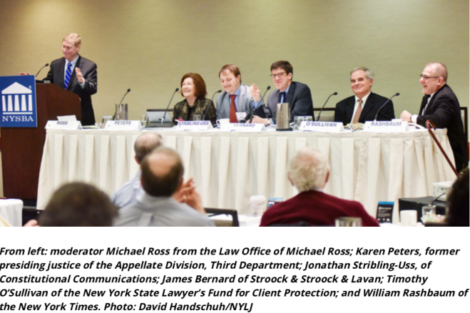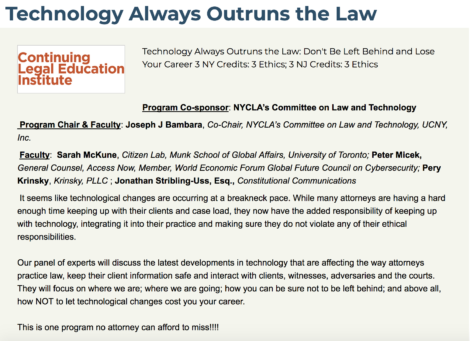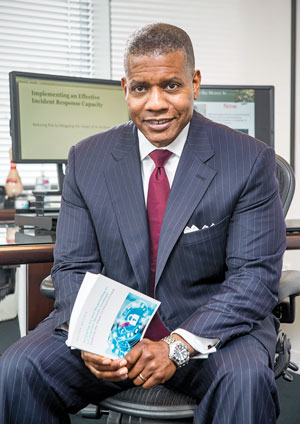Growth, Updates, Audits and Book features in 2022-2023
So much has happened over the past two years, it is hard to keep up! First, we are thrilled that our work was recently featured in the book published by Beacon Press “I Have Nothing to Hide” by Heidi Boghosian. In Chapter 13 on the myth that the attorney client privilege is sacrosanct she highlights our work in the section “Monitoring Lawyers Imperils Democracy” (pg. 135) where she writes: “The expectation of privacy between lawyer and client has been a cornerstone of the common law justice system for hundreds of years. Related entitlements are the right of an accused to a zealous legal defense and the right of an attorney to decide whom to represent. These rights are perhaps most precious to individuals who have been accused of crimes against the US or who hold viewpoints that the government does not favor. When lawyers know their communications may be monitored, the nature of their professional responsibility is impacted. Jonathan Stribling-Uss is devoting his legal practice to bringing secure communications to fellow practitioners. As necessary as digital proficiency is in the legal profession, many lawyers have barely made it past the analog age. “Our current system of Internet communication is not constitutional, especially regarding attorney–client communications,” he says… the concept of attorney–client privilege is a core American value and that when mass surveillance programs routinely violate that protection, it undermines one of the bedrock principles protecting our freedom…Lawyers’ failure to encrypt is largely due to governmental collusion with industry to confuse the issue and ensure that basic systems have been backdoored, he asserts. “Attorneys have not been given good information about this since the companies advertising are selling products that are actually broken.” He continues, “Clients have also not been educated about this. Clients control attorney–client privilege so they can demand that their lawyers use open-source encryption for their communication.”
Happily in the past years we have found many clients and organizations who are thrilled to have expert advice on how to secure their communications while fighting for secure attorney client communications and against surveillance.
Three of them who were able to share their experience with us were Annunciation House, the Foundation for Middle East Peace, and The Highlander Center.
As Ali Boyd, Human Rights Attorney, Annunciation House Board Member (https://annunciationhouse.org/) put it:
“Jonathan is an expert in digital security practices and a highly skilled facilitator and trainer. Most importantly, he shares our values as an organization and understood the nuances of our work as an NGO at the US-Mexico border. He provided comprehensive answers to our questions, important context, and concrete tools for our organization to utilize moving forward. We highly recommend Jonathan and Constitutional Communications!”
or as Kristin McCarthy, Director of Operations, (https://fmep.org/) says:
“Working with Constitutional Communications was a pleasure and a massive value-add for our small foundation. Over a short period, Jonathan was able to audit our current digital security risks, educate our key staff on what those risks are and how we can address them, and provide training on how to make recommended changes. We walked away with a new policy and procedures document that will continue to provide value to our organization even as the digital threat landscape evolves.”
Finally, Maria Rincon, Highlander Research and Education Center, (https://highlandercenter.org/) thought that the audit and trainings were:
“Extremely humbling and eye-opening to realize how little I actually knew about both the threats that exist and the ways to protect yourself, your co-workers, and your organization. This training has done an excellent job of preparing us with the resources and tools to begin to implement our learnings across the organization”
We are continuing to build our practice, and have new Roadmap Digital Security Cohorts in the works. We also have many other groups that we are working with to go deeper into security audits and education. We look forward to filling everyone in about those new partnerships in the coming months.




